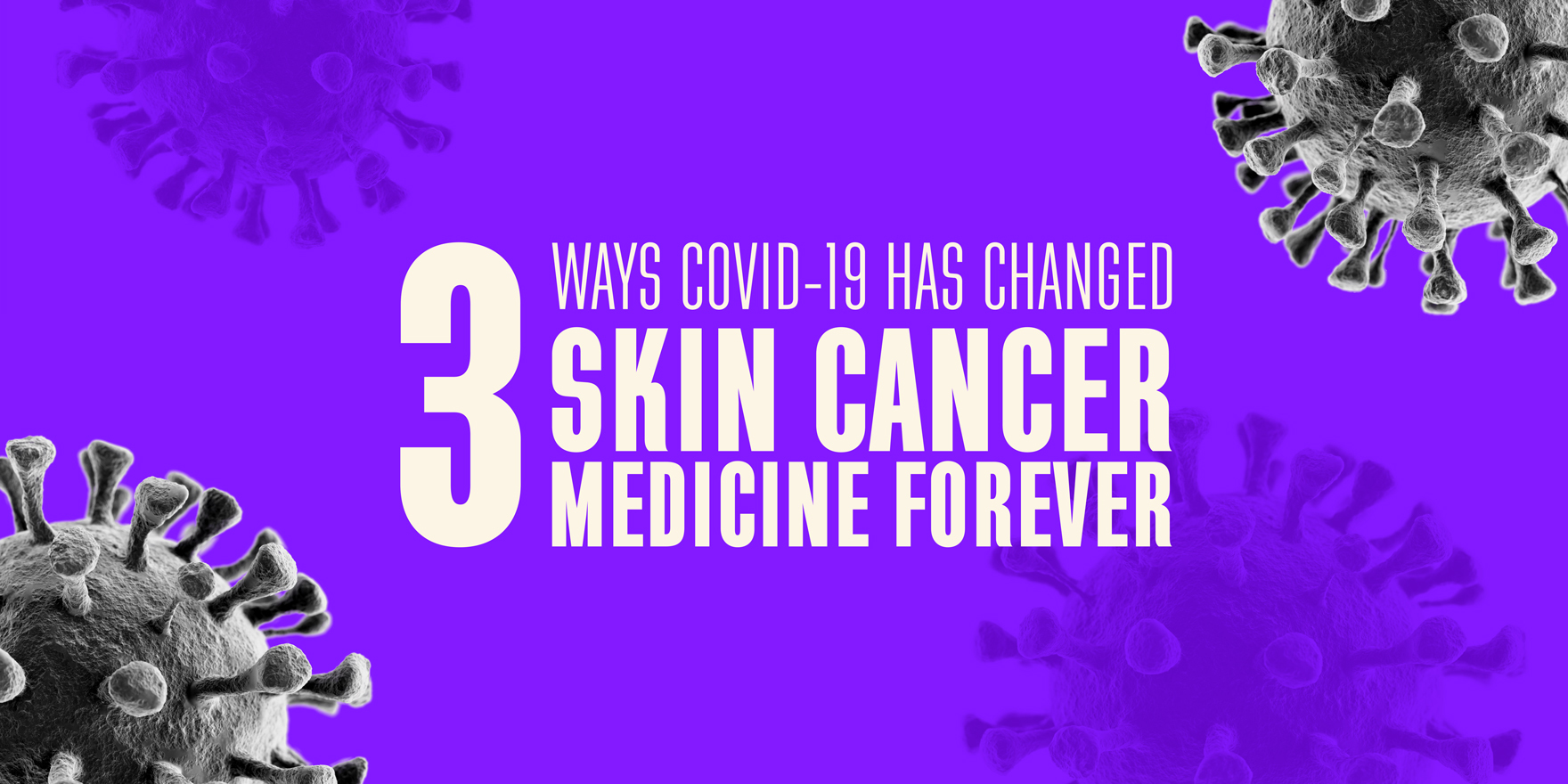One thing appears certain: the coronavirus has changed medical consultations forever, including the way skin cancer medicine will be practised
One thing appears certain: The coronavirus has changed medical consultations forever, including the way skin cancer medicine will be practiced.
As with everything COVID-19, that means some changes come with a silver lining, while others are procedural changes that we must accept for the safety of both patient and practitioner. With skin cancer being the most diagnosed cancer in Australia and New Zealand, the changes COVID-19 has heralded for skin cancer medicine are relevant for all practitioners and the entire community. Here are three ways COVID-19 has changed skin cancer medicine forever.
1. Telehealth is here to stay – with both practitioners and patients embracing telehealth, there is no doubt it will be a significant part of our post COVID world.
With over 3 million Australians accessing telehealth by 20th April1, the accelerated roll out by the Australian government is nothing short of revolutionary.
All practitioners are now able to receive recognition and payment for what had previously often been complimentary telephone consults. For a skin cancer practitioner to be paid to triage and provide management advice on cases based upon an image sent via phone, email or dedicated teledermatology app has changed the face of skin cancer medicine forever.
With skin cancer practitioners reporting surprisingly good results from telehealth, (a recent survey of a sample of Skin Cancer College Australasia members found 92% are getting a reasonable or better than reasonable outcome from using telehealth tools with their patients), we firmly believe this will be difficult to roll back when reviewed by the Government in Sept 2020.
In addition, we predict a proliferation of new patient friendly apps facilitating skin cancer telehealth to join those already established in this space.
2. Telehealth is good, but face-to-face examinations will always be the gold standard
There are some added complexities with telehealth that are quite specific to skin cancer medicine. The weak link in this sometimes life-saving chain is the patient’s ability to capture an image of a suspicious spot or lesion that is sufficiently clear and focussed to allow the practitioner to make a remote assessment, let alone a definitive skin cancer diagnosis.
Even if the practitioner has access to good quality images, being able to view a lesion using a dermatoscope combined with the ability to physically feel a suspicious spot and see it in comparison to the patient’s other lesions is critical.
So, for skin cancer practitioners who are making critical decisions on potentially malignant lesions, it is inherently clear that the “gold standard” will always be a face-to-face consultation.
3. The use of PPE during skin checks is here to stay
Pre COVID-19, assuming neither the patient nor practitioner presented as unwell, PPE was rarely used by practitioners during a full skin examination. COVID-19 has highlighted the need for more vigilant infection control for skin cancer practitioners who, by necessity, must work in close proximity to their patients. Routine use of PPE is one change we expect to continue in a post COVID world.
Whilst COVID-19 is necessarily dominating the national focus, it is important to remember that patients will still develop other conditions, some of them potentially fatal if diagnosis is missed or delayed. Primary care skin cancer doctors remain essential to meet the huge demand for the diagnosis, treatment and ongoing care of patients affected by the most common cancer in Australia.
As with every aspect of daily life, the primary care practise of skin cancer medicine will be forever changed by the COVID-19 pandemic. While responding to unexpected and rapid change can be difficult, it can also lead to positive improvements which become embedded in our daily routine and bring benefit to both practitioners and their patients.
The Skin Cancer College Australasia is the non-profit, peak body representing more than 1,000 skin cancer practitioners in both Australia and New Zealand. https://www.skincancercollege.org/
References:



